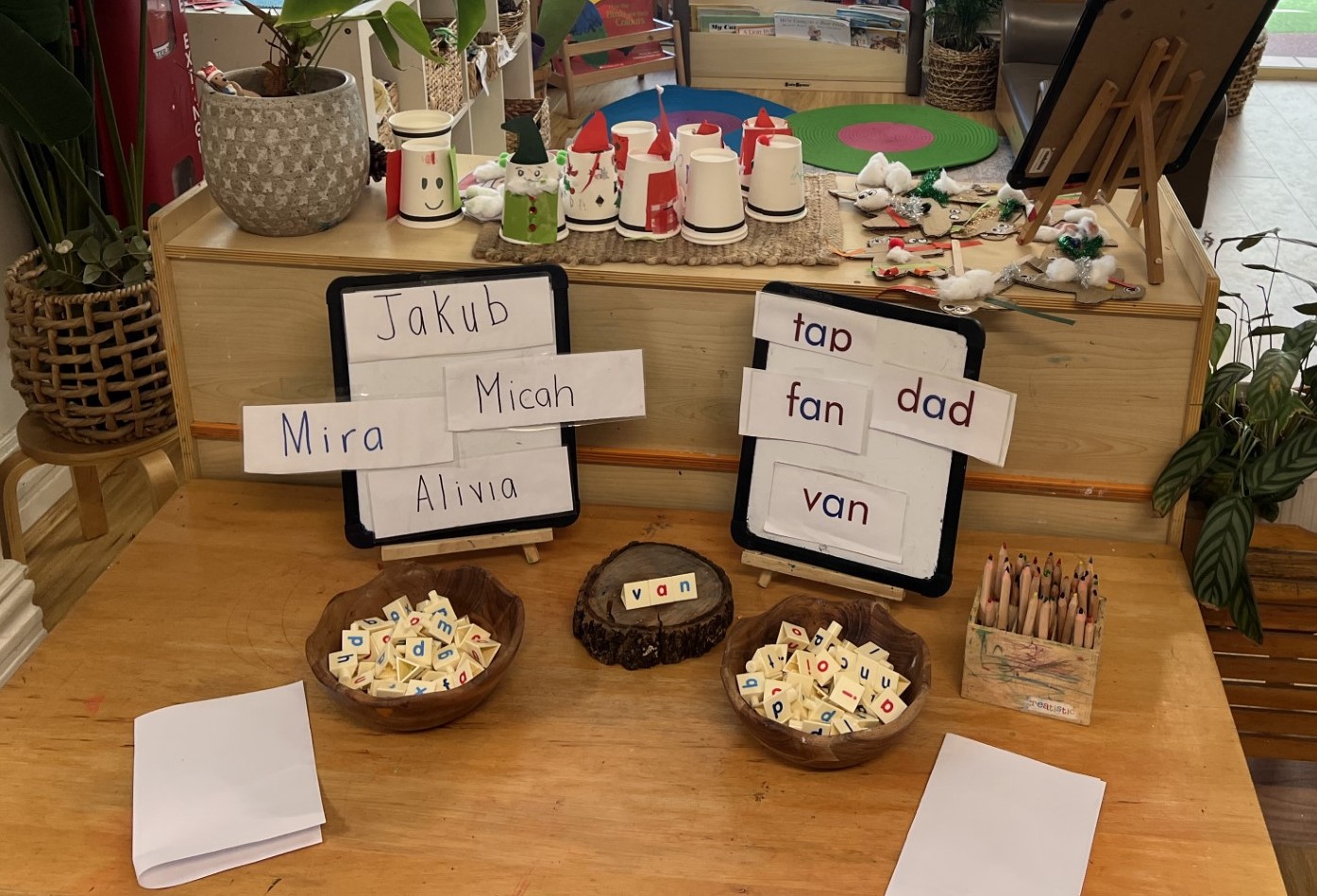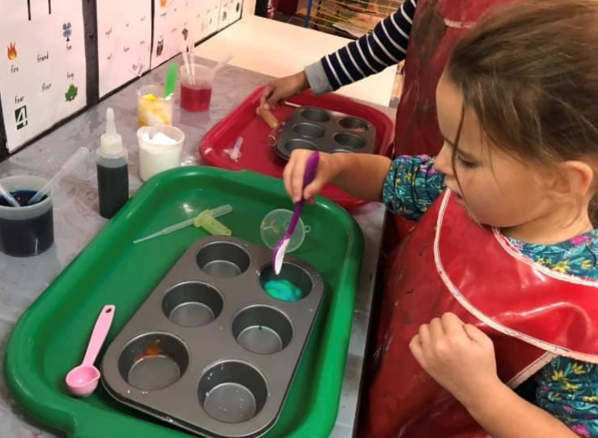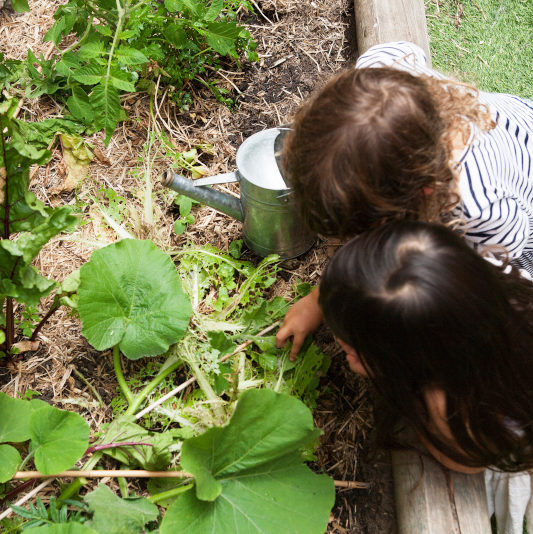In the Preschool room we focus on developing the skills that children need to become lifelong learners. Our preschool room offers a play-based program, where we recognise that well-resources, intentionally planned learning environments are essential to children’s learning and development. Children are viewed as powerful and competent learners and teachers – children and educators alike learn from one another.
In the morning, children gather together to share stories, sing songs and welcome one another into the space. This is also where we introduce new learning concepts and share ideas. Our preschoolers are encouraged to engage in free play within our home like environment. Children can move freely from one area of interest to another at their own pace. Each of these environments have a specific goal and objective in mind, which relate to the child’s interests as well as the intentionally teaching learning the educators are focusing on. The materials and equipment in the environments are extended on or modified regularly in order to challenge and extend learning.
Some environments include:
Our indoor and outdoor environments offer play-based learning opportunities before children transition to our daily group learning. Inquiry-based learning and projects are planned for this time, with topics relating to local and global issues in the world they live in. We reinforce this through scaffolding play, welcoming and engaging environments, and spontaneous and planned learning experiences. Educator’s develop a language-rich environment with children via their interactions, which is key to understanding higher order thinking concepts such as maths, language and the sciences.
Our Early Childhood Teachers foster positive dispositions for learning and support the children to strengthen skills in the lead up to their Transition to School. In preparation for the first year of formal schooling, your child will be exposed to concepts and skills necessary to succeed.
These skills include:
The Early Years Learning Framework is our guiding curriculum document. This along with our children’s interests and family input influences our program. The five learning outcomes are:


The Early Year Learning Framework is our guiding curriculum document. This along with our children’s interests and family input influences the program.
The five learning outcomes are:
Our preschoolers are encouraged to engage in free play, within a home-like environment. Children can move freely from one area of interest to another at their own pace. Each of these environments have a specific goal and objective in mind, which relate to the child’s interests as well as the intentional teaching learning the educators are focusing on. The materials and equipment in the environments are extended on or modified regularly in order to challenge and extend learning.
Some environments may include:

Click on the button now to add your name to our waitlist.
We will contact you within 24 hours for an update on availability!
Click on the button now to add your name to our waitlist.
We will contact you within 24 hours for an update on availability!